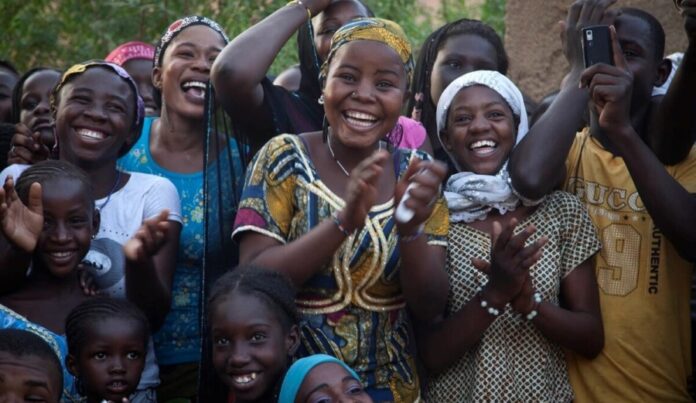Illustrative Image: Leadership Strategies for Conflict Resolution and Peacebuilding in Africa: Insights for Sustainable Development
Image Source & Credit: United Nation
Ownership and Usage Policy
A recent study by Ioryue, D. A. (2025) titled “Conflict Resolution and Peacebuilding: Leadership Strategies for Sustainable Development in Africa” published in Covenant University Journal of Politics and International Affairs reveals that effective leadership strategies play a crucial role in conflict resolution and peacebuilding in Africa.
“
Effective, inclusive leadership is essential for resolving conflicts and promoting sustainable peace, development, and resilience across Africa’s diverse communities.
– Ioryue, D. A. 2025
The study explores the critical role of leadership in addressing conflict and promoting lasting peace across the continent. It investigates how effective governance, inclusive policies, and strategic diplomacy can serve as powerful tools in fostering sustainable development. By analyzing the root causes and impacts of conflict in Africa—including economic disparities, social tensions, and political instability—the research highlights the urgent need for transformative leadership. The study delves into various leadership strategies aimed at dispute mitigation and peace promotion, drawing on case studies of African leaders who have successfully navigated complex conflict situations. The study concludes that strong, inclusive, and visionary leadership is essential not only for conflict resolution but also for building resilient societies. The study also offers practical recommendations for peacebuilding initiatives that support long-term stability and sustainable growth across the continent.
How the Study was Conducted
This study adopted a qualitative research approach to explore leadership strategies for conflict resolution and peacebuilding in Africa. By emphasizing in-depth analysis over statistical data, the research aimed to uncover the nuanced dynamics of leadership in conflict-prone regions. The methodology was centered around an extensive literature review, the examination of relevant case studies, and thematic analysis. The literature review encompassed prior research, policy documents, and reports focused on conflict resolution, leadership, and sustainable development. Through this foundation, the study established a contextual understanding of the challenges and strategies in peacebuilding. Case studies were used to analyze real-world examples where effective leadership played a pivotal role in mitigating conflict and fostering peace. These case studies provided practical insights into successful interventions across the continent. Using thematic analysis, the research identified recurring patterns and key strategies that contribute to effective peacebuilding efforts. This method allowed for a comprehensive understanding of leadership practices that go beyond quantitative measures, highlighting the critical role of human agency, diplomacy, and contextual awareness in sustainable conflict resolution.
What the Author Found
The study found that effective leadership strategies play a crucial role in conflict resolution and peacebuilding in Africa. The author also posit that strong leadership helps mediate disputes, promote dialogue, and implement sustainable solutions to conflicts and peacebuilding efforts are more successful when leaders engage diverse stakeholders, including marginalized communities.
Why is this important
Prevents Cycles of Violence: Learning from past conflicts helps leaders implement strategies that prevent future unrest.
Supports Economic Growth: Stability encourages investment and development, improving livelihoods.
Strengthens Institutions: Peacebuilding enhances governance structures, making them more resilient.
Promotes Social Harmony: Inclusive leadership fosters unity among different ethnic, religious, and political groups.
Guides Policymakers: Provides valuable insights for designing policies that prioritize peace and development.
What the Author Recommended
- The author recommends that government should enhance education, training, and capacity-building for leaders, while promoting participatory governance that includes marginalized communities in decision-making processes.
- The study emphasize that policymakers should implement policies that reduce poverty and unemployment, recognizing that economic empowerment is essential for lasting peace and conflict prevention.
- Strengthen collaboration among African nations to exchange best practices, coordinate peace initiatives, and build a unified continental approach to peacebuilding.
- Encourage dialogue, mediation, and the use of indigenous conflict resolution practices in conjunction with formal peacebuilding strategies.
In conclusion, the study by Ioryue (2025) underscores the transformative power of effective, inclusive, and visionary leadership in resolving conflicts and fostering sustainable peace across Africa. By addressing root causes such as economic disparity and political instability, and by promoting participatory governance and regional cooperation, African leaders can build resilient societies equipped for long-term growth and harmony. The research not only provides a roadmap for policymakers and peacebuilders but also reinforces the critical role of leadership in shaping a peaceful and prosperous future for the continent.
















 The African Research (AR) Index is a comprehensive scholarly directory and database focused explicitly on journal publishers that publish and disseminate African research.
The African Research (AR) Index is a comprehensive scholarly directory and database focused explicitly on journal publishers that publish and disseminate African research.

